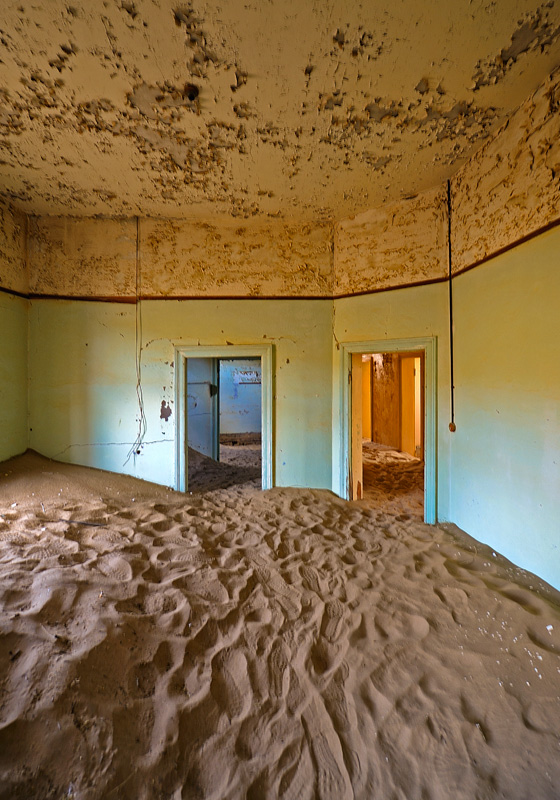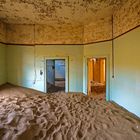NB01-25
Kolmanskop, Namibia
Kolmanskop (Afrikaans for Coleman's hill, German: Kolmannskuppe) is a ghost town in the Namib desert in southern Namibia, a few kilometres inland from the port town of Lüderitz. It was a small mining village and is now a popular tourist destination run by the joint firm NamDeb (Namibia-De Beers).
It developed after the discovery of diamonds in the area in 1908, to provide shelter for workers from the harsh environment of the Namib Desert. The name originates from a transport driver named Johnny Coleman who during a sand storm abandoned his ox wagon on a small incline opposite the settlement.
Driven by the enormous wealth of the first diamond miners the village was built like a German town, with facilities like a hospital, ballroom, power station, school, skittle-alley, theater and sport-hall, casino, ice factory and the first x-ray-station in the southern hemisphere as well as the first tram in Africa. It had a railway link to Lüderitz.
The town declined after World War I as diamond prices crashed, and operations moved to Oranjemund. It was abandoned in 1956 but has since been partly restored. The geological forces of the desert mean that tourists can now walk through houses knee-deep in sand. Kolmanskop is popular with photographers for its scenic settings of the desert sands reclaiming this once thriving town. Due to its location within the restricted area (Sperrgebiet) of the Namib desert, a permit is necessary to enter the town.











DRAGA PUC 11/04/2010 16:11
great series!rd
decay 22/10/2009 12:42
Hammer was für ne starkePersepktive, ich finde es
wirklich total klasse!
Sehr gut gemacht!
lg
Alexandra Baltog 19/10/2009 16:25
oh...Maguire 19/10/2009 10:52
See what happens when the house keeper takes a week off!